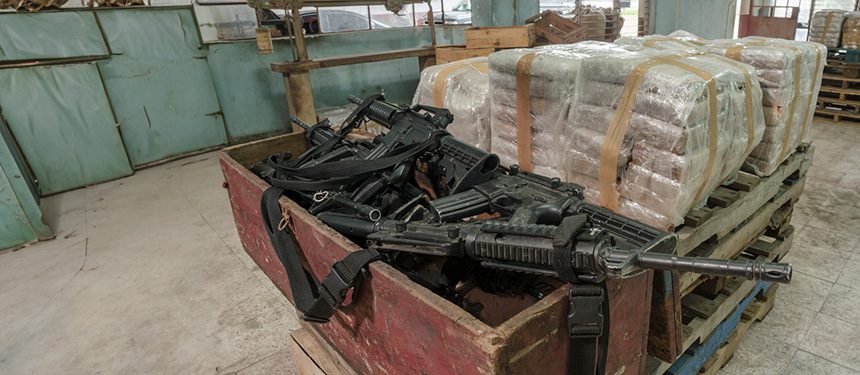Assessing cartel influence: key risks for businesses in Mexico

Cartels, once primarily focused on drug trafficking, have expanded into other illegal activities that can affect the business environment. Their influence on local areas and institutions can lead to security risks and operational disruptions. For companies operating in or entering the Mexican market, understanding these dynamics is essential for managing risks and ensuring long-term stability.
Cartel operations and expansion
Cartels are organised criminal groups formed to coordinate the efforts of several semi-independent cells. Mexican cartels are historically associated with drug trafficking, although nowadays, they are involved in a wide range of other illegal activities, such as extortion, oil theft, illegal mining and human trafficking. Shockingly, around 70% of the country’s lumber production is illicit, and 30% of fuel sold is stolen, according to government and industry sources.
These groups have a presence in around 81% of Mexico’s territory and have considerable influence over government officials, police officers and the judicial system. The two dominant groups are known as the Sinaloa Cartel (CDS) and the Jalisco New Generation Cartel (CJNG).
Impact on crime, kidnap and internal conflict
While cartels are not typically involved in opportunistic and street-level crime, their presence – and associated corruption of public officials - creates a permissive environment where gangs can act with relative impunity. The influx of guns into Mexico, driven by the cartels’ demand, also means that violent crimes such as mugging and kidnapping tend to be done with firearms. Turf wars between cartels over trafficking routes and armed confrontations with the security forces are one of the main drivers for Mexico’s elevated homicide rates. Although foreign nationals are highly unlikely to be targeted, with most incidents affecting local nationals involved with criminal activities, armed clashes pose incidental risks to bystanders. Cartels are also known to target investigative journalists, with Mexico being the most dangerous country in the Americas for such professionals, according to Reporters Without Borders (RSF).
Election cycles and cartel violence
While cartel-related violence is recorded year-round, particularly in rural areas controlled by criminal groups, spikes of violence are known to be recorded during election periods. Cartels attempt to influence elections by attacking voting centres, assassinating candidates backed by rival groups and carrying out intimidation campaigns for locals to vote for their preferred candidate. Recent trends indicate that cartels are increasingly involved in politics, with the 2024 election being the most violent in the country’s history. Precedent also indicates that captures of important cartel leaders are known to lead to waves of violence, exemplified by the Second Battle of Culiacán (Segundo Culiacanazo) in 2023, where Sinaloa Cartel members launched a wave of indiscriminate violence to force the release of Ovidio “El Ratón” Guzmán López. The power vacuum following the arrest of cartel leaders is likely to trigger infighting within the same cartel as competing factions try to move up in the hierarchy. Lastly, rival cartels can use the perceived weaknesses following a high-profile arrest to launch an offensive campaign.
Advice for organisations and personnel in-country
- Liaise with professional security support when travelling to areas of increased cartel activity. Check travel routes and journey management plans thoroughly before leaving secure accommodation.
- Vary routines, such as routes, timings and locations and do not unnecessarily give information about yourself or your travel. Ensure reliable and discrete communication with trusted colleagues regarding itineraries to minimise the risk of individuals linked to cartels listening to conversations.
- Book accommodation in established and accredited hotels. Implement check-in protocols and pay attention to the risk environment of the neighbourhood and the security offered by the accommodation.
- Identify a preferred ‘safe-haven’ for use in case of extensive cartel violence. Contact the local authorities for information on official emergency shelters and conduct a security audit on a preferred safe haven for personnel to stand fast in the event of extensive violence.
- Conduct basic pre-deployment security training for foreign nationals who lack experience in MODERATE and HIGH security risk environments. Healix provides Hostile Environment Awareness Training (HEAT) and High-Risk Security Training (HRST), which cover the principal risks of travel and basic measures to mitigate such risks.
For further information or to learn how Healix can support you, contact us at enquiries@healix.com.


